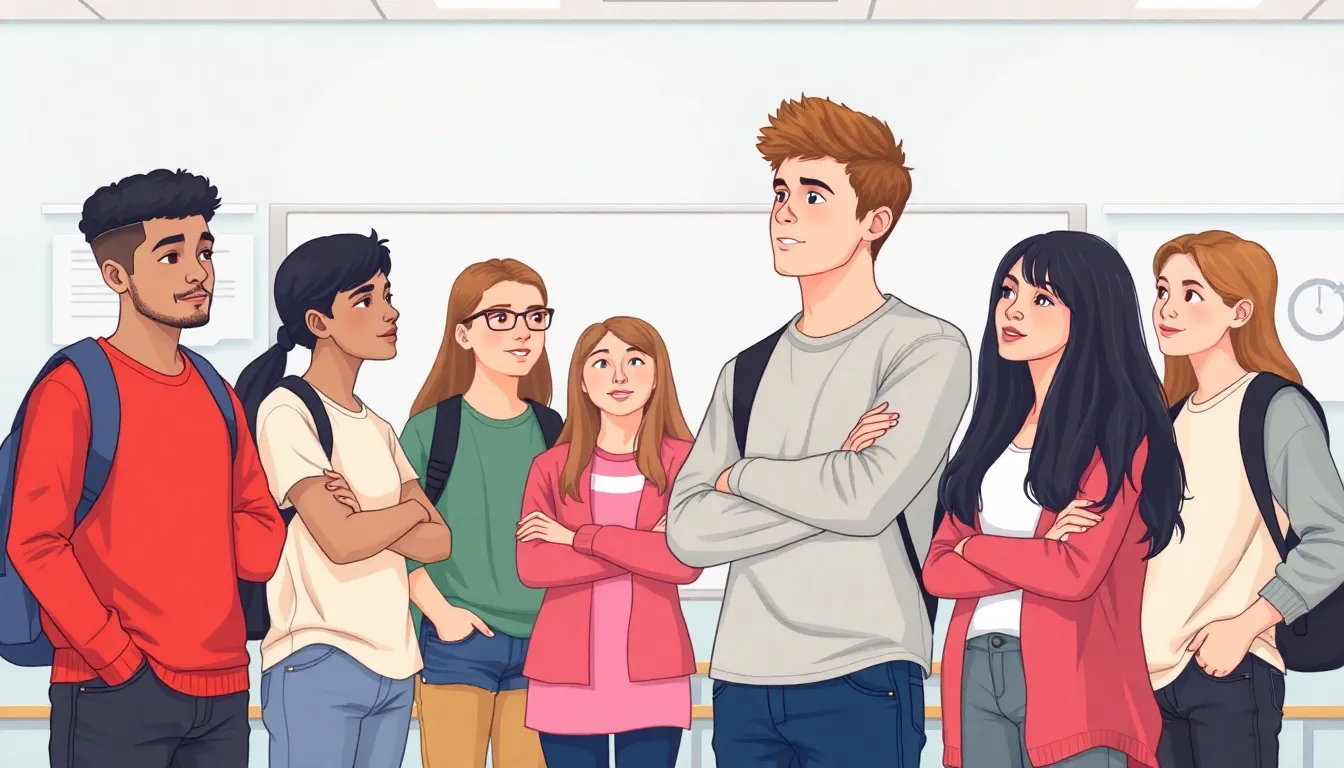Public speaking might sound like a nightmare for many teens, but it doesn’t have to be. Imagine standing in front of an audience, not sweating bullets, but confidently sharing ideas that could change the world—or at least impress your friends. With the right skills, public speaking can transform from a terrifying ordeal into a thrilling adventure.
Table of Contents
ToggleImportance Of Public Speaking For Teens
Public speaking plays a crucial role in teen development. It fosters essential skills that help shape their future.
Building Confidence
Involvement in public speaking cultivates self-assurance. Teens face their fears and manage anxiety in front of an audience. This exposure allows them to receive constructive feedback, leading to personal growth. Achieving success in presentations boosts confidence and encourages a willingness to engage in various social situations. Moreover, mastering speech delivery equips them with tools to navigate challenging conversations effortlessly.
Enhancing Communication Skills
Public speaking also enhances overall communication abilities. It teaches teens to articulate thoughts clearly and listen actively. Presentations require structured arguments, which improve critical thinking. Engaging with an audience encourages adaptability and responsiveness to feedback. Proficiency gained from public speaking extends beyond formal settings, benefiting personal relationships and academic discussions. Improved communication empowers teens to express themselves with clarity and conviction.
Common Challenges Faced By Teens

Many teens encounter obstacles when it comes to public speaking. Identifying these challenges helps in addressing them effectively.
Fear Of Public Speaking
Fear of public speaking ranks among the most common issues. This fear, known as glossophobia, can stem from concerns about judgment or making mistakes. Symptoms like shaking or stuttering often amplify anxiety levels. Adolescents frequently worry about their peers’ reactions, which can lead to avoidance of speaking opportunities. Overcoming this fear requires practice and exposure. Engaging in gradual exposure to speaking in front of others can significantly reduce anxiety. Supportive environments, like drama clubs or debate teams, foster confidence and create a safe space to practice.
Lack Of Experience
Lack of experience contributes to the difficulties teens face. Few opportunities in school or extracurricular activities lead to limited practice. When teens haven’t honed their public speaking skills, anxiety can heighten. Regular participation in class presentations or group discussions can build familiarity with speaking in front of others. Seeking out speaking engagements at community events also promotes growth. The more exposure teens receive to public speaking, the more comfortable they become. Actively pursuing these experiences translates into improved skills.
Effective Tips For Mastering Public Speaking
Public speaking becomes manageable and even enjoyable with the right techniques. Here are essential strategies to boost skills.
Practicing Regularly
Practicing often strengthens public speaking abilities. Engaging in daily exercises helps build confidence and reduces anxiety. Practitioners might rehearse in front of a mirror or record themselves. These methods provide insights into body language and speech clarity. Participating in local clubs, like Toastmasters, encourages consistent practice. Challenge oneself to speak in various settings, such as classrooms or community events. Frequent exposure makes public speaking routines more familiar and less intimidating.
Understanding Your Audience
Understanding the audience shapes effective communication. Researching who they’ll address enables speakers to tailor their message accordingly. Knowing interests, backgrounds, and demographics increases engagement. Asking questions or encouraging interaction fosters a connection. Adjustments to tone and vocabulary ensure clarity. When speakers resonate with listeners, messages become more impactful. Anticipating audience reactions helps prepare for dynamic exchanges during presentations.
Utilizing Visual Aids
Utilizing visual aids enhances presentations significantly. Well-designed slides or props clarify complex ideas and maintain audience interest. Images, charts, and videos complement spoken words effectively. Keeping visuals simple prevents distractions and reinforces key points. During delivery, referring to visual aids supports spoken content and adds variety. Practitioners should ensure that all tools function properly before the presentation. Engaging visuals encourage attentive listening and stimulate audience interaction, reinforcing the speaker’s message.
Resources For Teens To Improve Public Speaking
Teens can leverage various resources to enhance their public speaking abilities. Workshops and classes provide hands-on experiences and expert guidance.
Workshops And Classes
Local community centers often host workshops focusing on public speaking skills. Participation in these workshops fosters confidence through group exercises and constructive feedback. Schools may offer public speaking classes as part of the curriculum, equipping students with essential techniques. Additionally, toastmasters clubs welcome teens, providing a supportive environment for practice and improvement. Active engagement in these settings helps cultivate essential speaking skills while reducing performance anxiety.
Online Courses And Tutorials
Numerous online platforms offer courses tailored specifically for teens looking to improve their public speaking. Websites like Coursera and Udemy feature programs covering presentation skills and effective communication. These courses often include video demonstrations, interactive quizzes, and peer evaluations to reinforce learning. YouTube also hosts a plethora of public speaking tutorials, which provide free resources for developing effective strategies. Easy access to these online courses allows teens to learn at their own pace while building their confidence and ability to communicate.
Public speaking can transform from a source of fear into a powerful tool for self-expression and personal growth. As teens embrace this opportunity, they not only conquer their anxieties but also develop vital communication skills that will serve them throughout their lives.
With consistent practice and the right resources, they can enhance their confidence and articulate their thoughts more clearly. Engaging in public speaking prepares them for future challenges in both academic and social settings. By nurturing these abilities, teens can unlock their potential and make meaningful contributions to their communities.



